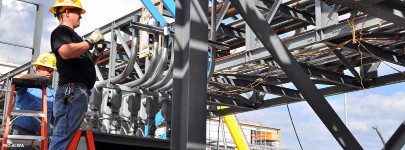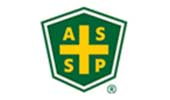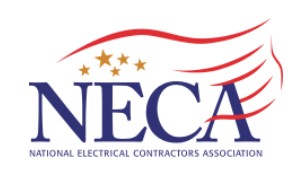Am I a Qualified Electrician?
Author: Al Havens

Qualified vs. Unqualified Defined
According to NFPA 70E® Article 110.2(D)(1)(e), page 15, General Requirements for Electrical Safety-Related Work Practices, the specifications between a qualified and an unqualified person are defined. This is to specify the requirements of electrical safety training, retraining and certification.
The standard defines a Qualified Person as one who “shall be trained and knowledgeable of the construction and operation of equipment or a specific work method and be trained to Recognize and avoid the electrical hazards that might be present with respect to that equipment or work method.” An unqualified person is said to be “trained in, and be familiar with, any electrical safety-related practices necessary for their safety.”
People often want to know if electricians will be qualified by attending one of e-Hazard’s Electrical Safety Training courses and the answer is that they may become qualified if they attend the course.
What is Considered "Qualified?"
According to OSHA and NFPA 70E they need the following to be considered “qualified.”
- They need to demonstrate they have the skills to do the work they are to do.
- They need to demonstrate they have the knowledge to do the work they are to do.
- They need to have received safety training to recognize and avoid the hazards involved.
If they demonstrated they have both the skills and knowledge, e-Hazard’s Low Voltage Training course may complete the requirements to be considered a “Qualified Person.” All three items are required. It is possible to have the knowledge and safety training without having the skills. In that case, that person is not a “Qualified Person.” They may also need training in other areas, such as First Aid, CPR, use of an AED.
Do I Have What it Takes?
The next question may be, “How does one demonstrate they have the skills and knowledge?” OSHA leaves that up to the employer (CFR 29, Standard Number 1910.399). NFPA 70E specifically requires a person demonstrates they can properly use a voltage detector, interpret its indications, as well as understand all the limitations of each specific voltage detector in use at the employers site (NFPA 70E Article 110.2(D)(1)(e), page 15). NFPA 70E states further that “…the employee [shall demonstrate] proficiency in the work practices involved…” (NFPA 70E Article 110.2(E), page 15). So, an employer needs to determine whatever else a person needs to demonstrate that they have skills and knowledge necessary to do their job, besides the use and application of a voltage detector.
The standard goes on to emphasize the required retraining a person must participate in to remain qualified. Retraining must be completed every three years. Retraining or additional training courses must occur if annual inspections indicate non-compliance on the part of an employee. Also, the implementation of new technology or equipment can necessitate updated procedures and safety-related work practices. In addition, retraining may be necessary if an employee is called upon to perform new duties related to electrical safety that are not part of their regular duties.
The e-Hazard Solution
Do You Need Electrical Safety Training?
Join thousands of happy customers who have gone through our training.





